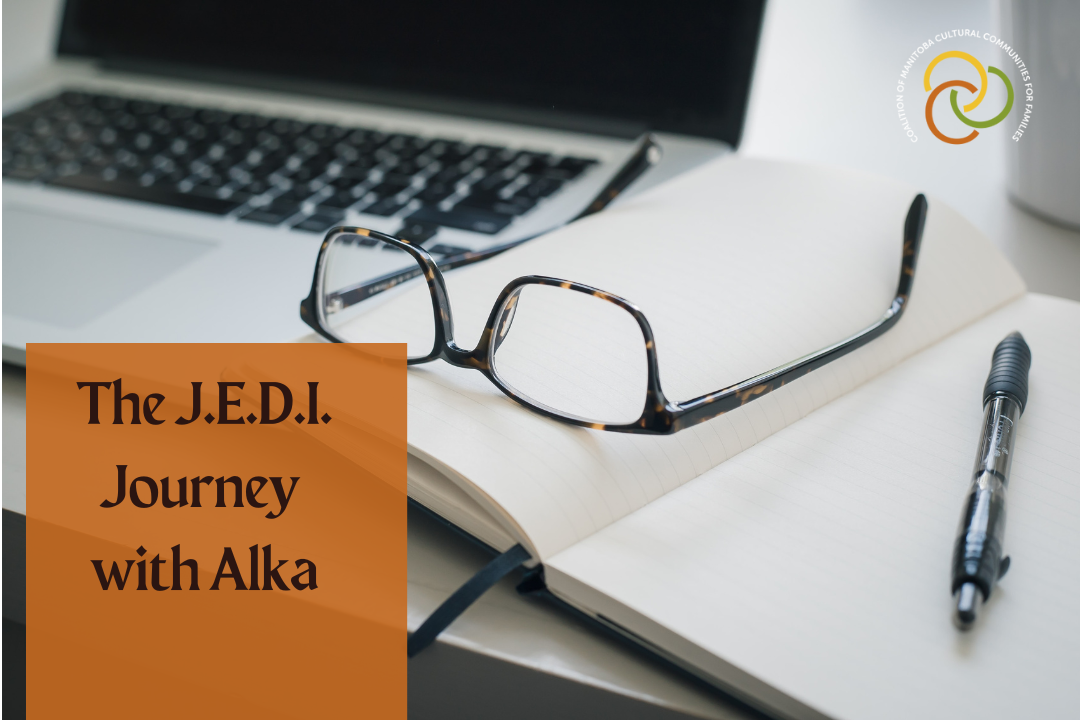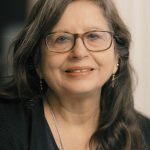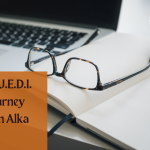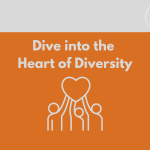
Hello again, here’s looking ahead to the promise of spring, sending out a warm welcome to our readers, members, allies, and all well-wishers who aspire for a just and peaceful world.
If you browse our website regularly, or even once-in-a-while, you may have noticed that a call was sent out to invite members of cultural communities to join us on February 16 for a community engagement gathering held in partnership with Mediation Services. The event was part of our J.E.D.I. (Social Justice, Equity, Diversity, Inclusion) project, and we called it:
Cultural Communities and Community Service Providers Initiative.
For our team at CMCCF, this event was envisioned as the first such gathering in a series of three; the big picture vision and purpose guiding these stakeholder engagements being to bring together cultural communities, service providers and policy makers to understand each other’s perspectives, so we all may work collaboratively to achieve outcomes that are in the interests of all parties.
In accordance with this vision, this first gathering on February 16 brought together members of cultural communities. The goal of the second – to be held in a few months – is to invite members from service providing agencies to gather round the table and share their experiences and challenges; and the final one would bring both these parties of stakeholders together in the conversation space with policy makers.
Many of you joined us and your deep engagement is much appreciated; your contributions to the discussion and your commitment to ongoing dialogue will go a long way in lighting the path forward for us all. We invite those who were not able to join the last conversation, but heard about it, (or would read about it here), to join us next time. In the meanwhile, do follow us on our socials – LinkedIn, Instagram – to stay updated regarding our activities and our J.E.D.I. journey. You can send us an email anytime, sharing your suggestions, as we’re always happy to be guided by your concerns to explore new ideas that help us move forward with purpose.
Here’s a debrief of the Feb 16 event:
Cultural Communities and Community Service Providers Initiative.
The objective that drove the agenda for this evening was the explore the following key question:
Do relationships between Cultural Communities and Service Providers need to be strengthened, and how can this be done?
A couple of other “deep dive” questions we had set aside for discussion later, in a small group setting, were geared to help us better understand:
(a) How our members’ experiences of accessing services were; for instance, were they optimal, sub-optimal, or pretty bad (aka terrible). Our hope was also that they might shine a light on how they believed these experiences may be improved so that their needs could be better met, their concerns addressed to their satisfaction.
(b) Furthermore, from this discussion, we also wanted to learn if community members felt that the service provision received by them “felt” like it was coming from a place that genuinely valued principles of fairness, equity, and diversity (this question is being asked more and more now, in contexts and organizations where an EDI lens is being used not in an integrated (and organic) manner but in more of a performative way, like an “add (EDI) and stir” kind of approach.
In other words, we wanted to know if inclusion was being “actualized” in the “lived experiences” community members were having in their everyday interactions when they went to seek services, for instance, from healthcare providers, or settlement and employment support workers, or when they had an encounter with law enforcement personnel or with child and family services.
Let me add a few disclaimers as I describe and summarize our evening together!
One, we did not get to the last question as a lot of discussion focused on trying to ensure we were on the same page when we used the same words or terminology. This is not unusual. For example, words like, “community,” or “equity,” or even “service providers” do not always have the same implications or meaning for everyone as even when our experiences are similar to those of others, they are also quite unique.
So, we spent quite some time ensuring that all voices in the room be heard, and all views expressed, so at least we may begin to get a sense of the diversity of experiences – and dilemmas too – in that room. It was time well spent, I may add, as when we did not answer many pre-set questions, our honest and authentic conversations led to the surfacing of many more discomforts.
And new questions emerged that led diverse cultural community members to feel energized, decide to take ownership and initiative to explore what solution-building might look like in the future, and how community self-determination could be a pathway to get there.
Two, although we could not really arrive at consensus regarding who these service providers were with whom relationships needed to be improved and strengthened, to me, such an outcome is telling as “systems” and “structures” often show up as nebulous, huge, and overwhelming; nameless and faceless too; and this is also why it’s so difficult to pinpoint at specifics or hold them accountable.
While we did not manage to get on the same page about who exactly these service providers were that needed to do better so that equity, justice, and inclusion could become more of a ground reality for members of cultural communities, it was amply clear that serious gaps exist in this regard and something must be done to make things better. Particularly for newcomers, refugees, and racialized immigrants, even those established in the city for long years (all these were the profiles of most individuals who participated in the gathering), many of the challenges are exacerbated and they felt urgent. We know well that disaggregated data, that began to be collected from so many sectors during the later phases of the COVID-19 pandemic, has provided good evidence of these realities.
Well, you might find a longer account of the proceedings from the evening helpful for fleshing in more details, and there will be more coverage about the content through community stories, and other accounts we share on our website or on social media, going forward. If any of the attendees wish to share their reflections, that would be very welcome too. For now, I will end this post with a couple of my personal takeaways, and these might point in directions we could pursue together.
The stories shared by community members spoke loudly and clearly about the way individuals experienced these gaps when reaching out for services, as well as the persistence of racism and discrimination. Lack of communication, either due to language barriers, or cultural safety, was one of the factors pointed out; another factor was duplication of services, lack of organization and coordination, sometimes leading to misalignments between needs and services being provided, this ultimately leading to a waste of resources.
More positive experiences of receiving services were shared too. And it is certainly true that for many individuals – newcomers and immigrants, refugees, and asylum seekers – the settlement and employment support they have received from settlement sector agencies, and from other allied service providers – from frontline staff and others responsible for running program and services, have made a transformative change in their integration trajectories.
This is why it becomes even more important to ask: what needs to be done to ensure that access to services is more equitable, and more just? How can relationships between cultural communities and service providers be made more inclusive, more responsive; how can equity and justice be understood and applied so that it may be experienced by individuals through being actualised in their everyday lives?
If I were to pick one of the approaches to conflict resolution and peacebuilding that has the potential for leading sustainable change, it would be Conflict Transformation. Underlying such a framework is the objective of shifting the unequal power dynamics within relationships; and as applied to the context of our current discussion, it then becomes about cultural communities being equal partners through having a seat at decision making tables.
CMCCF, playing the role of bridge-builder, and facilitating leadership through training programs and learning events as we currently do, can perhaps support members of cultural communities in identifying and developing the assets they already have, to take charge, and to participate in whatever be their networks and spheres of influence, to lead change from within.
It was heartening to see that many present that evening during the event we held in partnership with our ally, Mediation Services, seemed prepared and ready to jump in and take such initiative and to lead such a process. I have no doubt that all of us are excited to see how, together, we create meaningful pathways for change-making that can help move us forward.

The views expressed in this blog post are mine, and I take full responsibility for them. We are always wanting to hear from you – please share your thoughts and feedback by completing our contact form here or by emailing hello@cmccfamilies.ca.
To learn more about our Intercultural and Intergenerational Diversity and Inclusion Engagement Project, go to our J.E.D.I. Initiative landing page here.
About the Author:
Alka Kumar, Ph.D., is a Project Advisor and Web Content Creator for the CMCCF. Read her full bio here.

 Previous Post
Previous Post Next Post
Next Post